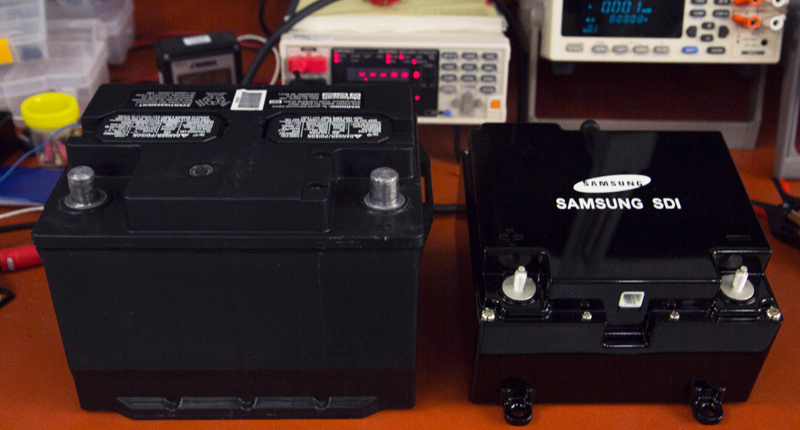Anthropic says its AI will not be used to spy on customers, even in government contracts. Here is what that means for AI governance, enterprise trust and defence partnerships.
Ford, Samsung team up to kill the lead battery for good

If you’ve ever picked up a car battery, you’ll know that its weight can be pretty damn substantial, and that’s hardly ideal in a world where car makers are desperate to save weight wherever they can. Enter a new partnership between Ford and Samsung.
The American motoring giant has teamed up with the Korean tech company to a build a new ultra-lightweight lithium-ion battery concept that the two companies believe could one day render traditional lead-acid batteries obsolete.
For now though, the two companies are looking to build batteries that are a hybrid of traditional lead and lithium-ion but which could still result in substantial weight savings. Perhaps the most promising thing about the technology is that it could enable non-hybrid cars to have regenerative braking. That in turn, means potentially big savings at the fuel pump.
“Although still in research, this type of battery could provide a near-term solution for greater reduction of carbon dioxide,†says Ted Miller, senior manager, Energy Storage Strategy and Research at Ford.
The ultimate prize however is getting fully lithium-ion batteries into cars. Ford and Samsung’s research into this field is meant to advance the lithium-ion battery technology currently available on Ford’s electrified vehicles.
“Lithium-ion batteries are typically used in consumer electronics because they are lighter and more energy-dense than other types of batteries, which also make them ideal for the vehicle,†said Mike O’Sullivan, vice president, Automotive Battery Systems for Samsung SDI North America. “Battery technology is advancing rapidly and lithium-ion could one day completely replace traditional 12-volt lead-acid batteries, providing better fuel efficiency for drivers.â€
Ford says that the Lithium-ion batteries currently used in Ford’s its vehicles are 25-30% smaller than previous hybrid batteries made of nickel-metal-hydride, and offer approximately three times the power per cell. The battery concept it’s built with Samsung meanwhile aims to take that saving up 40%.
While there have always been questions around the environmental impact of car batteries, especially in hybrids, it’s pretty obvious that putting less of a material into a car battery will result in a lessened impact.

